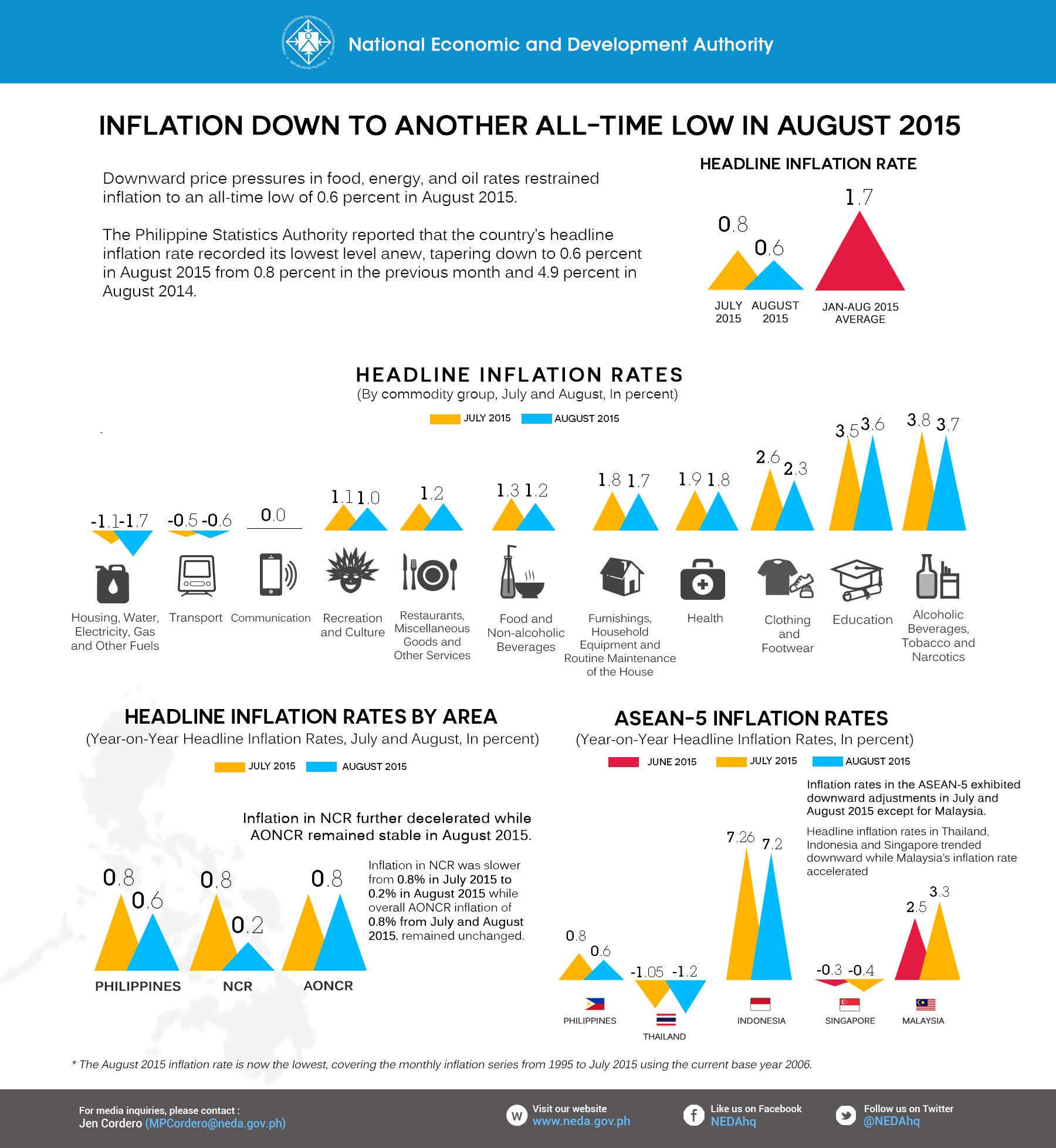MANILA – Downward price pressures in food, energy, and oil rates, restrained inflation to an all-time low of 0.6 percent in August 2015, according to the National Economic and Development Authority (NEDA).
The Philippine Statistics Authority reported today that the country’s headline inflation rate recorded its lowest level anew, tapering down to 0.6 percent in August 2015 from 0.8 percent in the previous month and 4.9 percent in August 2014.
“The current low inflation environment exhibited in the first eight months of 2015 has supported domestic demand, particularly household consumption, and we expect this to persist throughout the rest of the year,” said Economic Planning Secretary Arsenio M. Balisacan.
Thus, the August 2015 inflation brought the year-to-date headline inflation to 1.7 percent, below the target range of 2.0 to 4.0 percent set by the government for 2015. But the figure was within both the Bangko Sentral ng Pilipinas’ forecast of 0.2-1.0 percent for the reference month and the market expectation of 0.6 percent for the reference period.
Meanwhile, headline inflation in the food subgroup continued to ease in August 2015 (1.2% from 1.3%) following slower price adjustments in almost all its sub-items such as breads and cereals, fish, and fruits. The stable bread prices benefitted from the steady decrease in the price of hard flour.
Also, lower electricity rates and oil prices significantly affected price movement of non-food commodities, which was slower at 0.2 percent in August 2015 from 0.4 percent in July 2015.
“Food inflation and international oil prices are expected to remain low and will constrain any upward price movements in the near term,” said Balisacan, who is also NEDA Director-General.
Core inflation—which excludes selected volatile food and energy prices—also slid further to 1.6 percent from 1.9 percent in July 2015 and 3.4 percent in August 2014. Thus, for the first eight months of the year, core inflation averaged at 2.2 percent.
Furthermore, inflation in the National Capital Region was also slower in August 2015 relative to the previous month (0.2% from 0.8%), while inflation in the other regions of the country (0.8%) remained unchanged.
However, Balisacan noted that there is still an upside risk to inflation from the expected strengthening of the El Niño in the country in the coming months until early 2016.
“We need to reinforce our El Niño preparations to ensure food security. The strong collaboration of the national government, local government units, and the private sector is essential to the success of efforts to mitigate the effects of El Niño,” he said.
The NEDA is now spearheading the government task force on El Niño, and has started drafting the Roadmap to Address the Impact of El Niño (RAIN).




